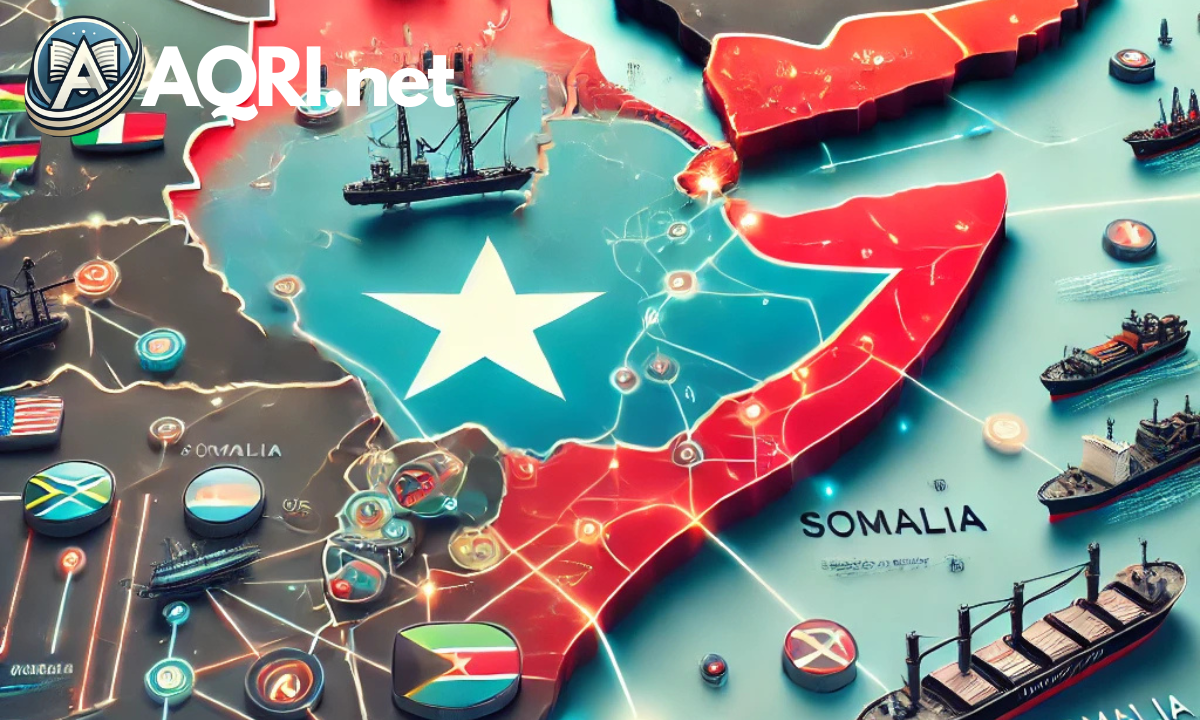The Geopolitical Importance of Somalia: At the Crossroads of the Horn of Africa
Mogadishu, Somalia (AQRI.net) Perched on the edge of the Indian Ocean and the Gulf of Aden, Somalia is emerging as a geopolitical linchpin in the Horn of Africa. Its strategic location, at the crossroads of Africa and the Middle East, has historically made it a focal point for global powers. Today, Somalia is leveraging this unique position to influence regional dynamics and attract global attention.
A Gateway Between Continents
Somalia’s 3,300 kilometers of coastline, the longest in mainland Africa, borders some of the world’s most critical maritime routes. The Gulf of Aden sees over 20,000 ships annually, transporting goods and oil between Europe, Asia, and the Americas. Somalia’s proximity to these shipping lanes gives it unparalleled strategic importance.
“Somalia sits at a choke point for international trade,” explains Dr. Fatuma Ali, a geopolitical analyst. “Whoever controls this space has influence over global commerce.”
Balancing Global Powers
In recent years, Somalia has attracted the interest of major powers, including the United States, China, and Russia. Each seeks to establish its influence in the Horn of Africa, where Somalia acts as a critical player. While the U.S. has increased its military presence to counter extremism, China has invested heavily in infrastructure projects, including the modernization of ports.
The competition between these powers has presented Somalia with opportunities and challenges. The government has adeptly managed these relationships, using them to secure foreign investments while maintaining its sovereignty.
Regional Diplomacy and Rivalries
Somalia’s role in regional geopolitics extends beyond its borders. Its relationships with Ethiopia, Djibouti, and Kenya are crucial for fostering regional stability. However, maritime disputes, particularly with Kenya, remain a contentious issue. Somalia recently secured a legal victory at the International Court of Justice over a disputed maritime zone, underscoring its commitment to peaceful resolution of conflicts.
“Somalia’s diplomatic strategy is evolving,” says Ahmed Warsame, a professor of international relations. “The government is pursuing a balanced approach to regional cooperation and conflict resolution.”
Countering Extremism and Ensuring Stability
As a frontline state in the global fight against extremism, Somalia plays a vital role in ensuring security in the Horn of Africa. Its partnership with the African Union Transition Mission in Somalia (ATMIS) and other international allies has helped stabilize key regions, though challenges persist.
The fight against Al-Shabaab, a terrorist group operating in the region, remains Somalia’s greatest security concern. Analysts believe that long-term stability will bolster Somalia’s geopolitical standing further.
Looking Ahead
Somalia’s strategic importance continues to grow as the Horn of Africa gains prominence in global geopolitics. With its geographic advantage, natural resources, and active diplomacy, Somalia has the potential to become a leader in the region.
For now, Somalia’s path forward lies in balancing the interests of global powers, securing regional peace, and leveraging its location to foster economic and political growth.
